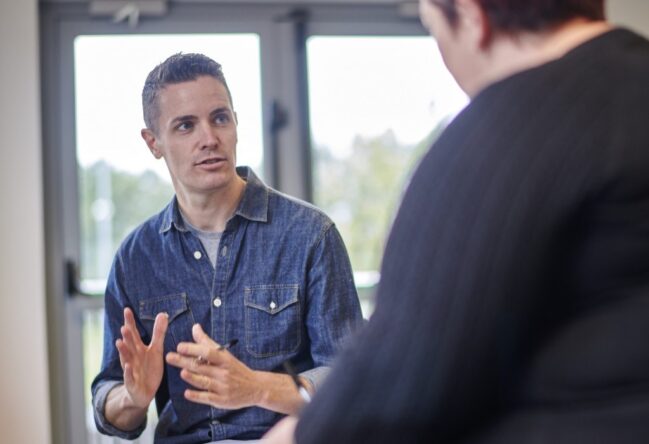Blog
Types of counsellors
January 24, 2020
3 minutes, 30 seconds
This article explores the different types of counsellors and what they do.

Counselling encompasses lots of different therapy specialities. There are a diverse range of counselling professions designed to help people in lots of different ways.
From mental health and marriage counselling, through to substance abuse counselling, family therapy and more, there are a variety of routes and specialisms within the field of counselling. At Chrysalis Courses, our courses provide you with a wide range of training that integrates all types of counselling into a single toolkit. You’re then able to take further steps to specialise as you gain experience.
Due to the diverse nature of the industry, there are opportunities to work within many different sectors, including rehabilitation facilities, schools, hospitals, private practices, as well as many other locations. Each of these industries require a broad skillset, even those with specialist needs, to ensure the welfare and safety of the patient.
If you’re considering a career change and looking to become a counsellor or you’re exploring the possibility of working in a different speciality, here’s our guide to different types of counsellor specialisms.
What skills do you need to possess to become a great counsellor?
You will need to possess a broad spectrum of skills to become a great counsellor, something we believe is important regardless of any resulting specialism. You’ll mostly need to be an excellent listener, empathetic, supportive, patient and compassionate.
Do you need a degree to become a counsellor?
You do not require a degree to become a Counsellor, but employers will expect you to have trained with a professional training provider, be a member of a professional accrediting body such as the NCS or BACP and to be following standards and a code of ethics as set out by the accreditation body.
Click here for more details on our Counsellor and Hypnotherapy courses.
Mental health counselling
From anxiety and depression, through to bipolar and eating disorders, mental health concerns encompass a broad range of conditions that can materialise at any stage in our lives.
The role of a mental health counsellor is to offer support, guidance and coping strategies your clients can employ on their road to recovery. In order to provide effective emotional and psychological support, you must be committed to helping people, while encouraging your clients to open up.
Rehabilitation counselling
This type of counselling involves helping people to get back on their feet again following a mental, physical or emotional trauma, illness or disability.
The main aim of this type of counselling is to set achievable goals that will facilitate your client leading a productive life. Whether you work in a school, residential care facility, hospital or college, your job will involve providing emotional and physical support.
Marriage and family counselling
Sometimes marriages and relationships break down and this can have a huge impact on a person’s mental health.
Marriage and family counsellors are there to help people to work on their relationships, offer support and guidance after the breakdown of a long-term relationship, and help families to work on their communication skills during difficult times.
This type of counsellor will also handle domestic violence issues, marital conflicts, adolescent behaviour issues and infertility.
Substance abuse counselling
Addiction and substance abuse can have a huge impact on an individual’s life. Many people require support and guidance when it comes to overcoming addiction.
A substance abuse counsellor helps by developing strategies and treatment plans which will help a client on their road to recovery. This often means overcoming denial and rationalisation problems.
Educational counselling
Many children and teenagers need support from time to time. From bullying issues, low self-esteem and social anxiety through to poor academic performance and problems with family and friends, there’s lots of reasons why children require the support of a counsellor.
More people than ever before, experience some sort of mental health condition. From anxiety disorders, bipolarity and obsessive-compulsive disorders through to panic disorders, post-traumatic stress disorders and social phobias, there’s a whole host of mental illnesses that can be resolved with effective counselling.
If you’d like to discuss your future career with us please do get in touch and we’ll give you a call at a time to suit you!